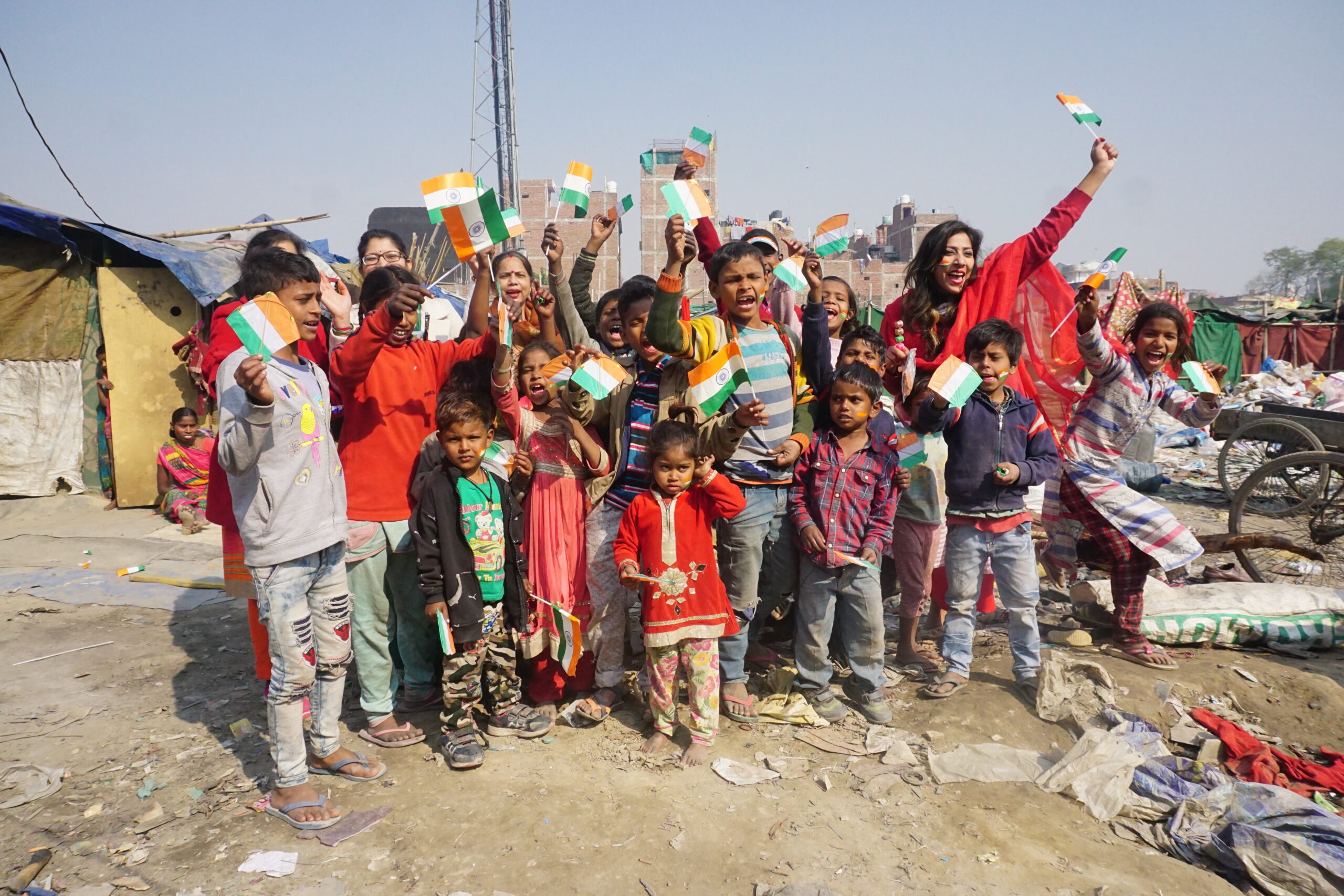
The Khodda village, with its extended population in the form of Khodda colony, primarily was earlier a village which has transformed into a town over a period of time due to its proximity to National Capital Region and two industrial cities i.e. Noida and Ghaziabad. The location at the border is one of the crucial reasons why it became a favourite place for migrant population to settle as this provides access to job opportunities and markets of all the three cities. Khodda has transformed into one of the most densely populated unauthorized colonies of Asia inhabited mostly by low income migrants from Uttar Pradesh (UP), Uttaranchal, Bihar, Jharkhand and Bengal where they could either buy a small plot because of the less prohibitive land rates and earn a livelihood. Living at the lowest rung, are the those who do not own any land and are living on rent in Khodda. They are primarily rickshaw pullers, rag pickers, scrap cart pullers, labourers in the repair or printing shops
and young factory workers most of whom are employed on a contractual basis. Most people in the area are uneducated. There is no proper water supply or drainage system. There is no playground for children in this community. Due to inadequate garbage disposal practices, the community is surrounded by large mounds of open garbage and the related diseases. Instances of crime is also high in the area.
It has also been found that majority of children lack a conducive/supportive environment to study in their homes, access education and continue education. The socio-economic conditions prevailing at home, force children (particularly girls) to dropout from schools early. This is most prevalent specially among girls, who are required by their families to attend to their younger siblings; have to look after the household chores or are forced into labour activities at a young age; they there are married off at a younger age due to societal and family pressure. The societal attitudes (including social hierarchy) is also a concern factor that limits/inhibits children (particularly girls) to access and pursue education. The children are also exposed to various kinds of abuse and violence that affects their well being since the childhood. It is also pertinent to note that children from underprivileged backgrounds who are in need of educational support do not have access to affordable learning facilities (tuition/remedial and learning reinforcement) that deprives children of education even further.
Those (first generational school goers) who are attending schools (especially government schools) still lack adequate and functional infrastructural facilities; lack access to quality education; and have limited learning opportunities. It is further noted that in most schools, the children are not exposed to quality learning environment; lack adequate and child-friendly learning material; have less access to library to enhance reading/knowledge; have not been introduced to computer learning; have limited or no opportunity to explore extra curricular activities to develop skills for overall development. Over time children/girls lose their confidence to pursue education after realising that they are not able to face the academic levels in senior classes and less motivated due limited academic support.
Also it is to be noted that even youth primarily the older girls/women are unable to guide the younger generation. The older girls and women are unable to make choices for themselves and for their families resulting into vicious cycle of deprivation and marginalisation. Due to lack of accessible (and quality) educational and skill enhancement facilities along with socio-cultural barriers; women have not been able to come to the forefront in the process of socio-economic development.
Such scenario suggests the numbers of individuals/children/women from socially-economically vulnerable backgrounds who are in need of services (and need to be empowered and mainstreamed). To bring children, women and families out from trans generational socio-economic vulnerability, it is important that measures are taken at the earliest for creating a sustained transformation. The organisation believes that education and skill enhancement enables individuals to make choices about their lives, it helps to maintain healthy relationships in their families, it gives them the ability to work and achieve financial independence. It is important that the children and youth (particularly women) are provided with opportunities to learn, experience and develop their skills to enable themselves to mould to achieve their life goals and sustain themselves. It is imperative that projects such that being proposed by Agnel Charities are initiated to address the cater to the needs of children and women from vulnerable backgrounds and improve their lives.

